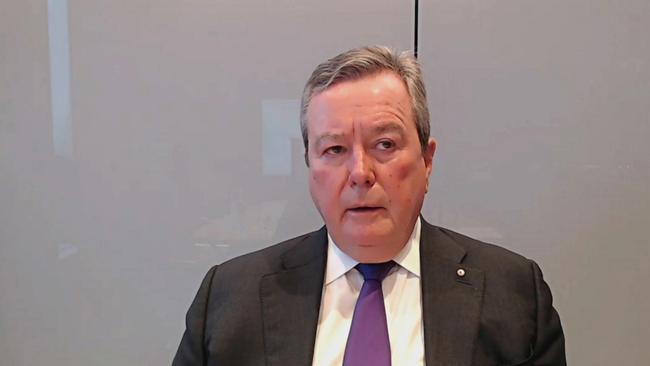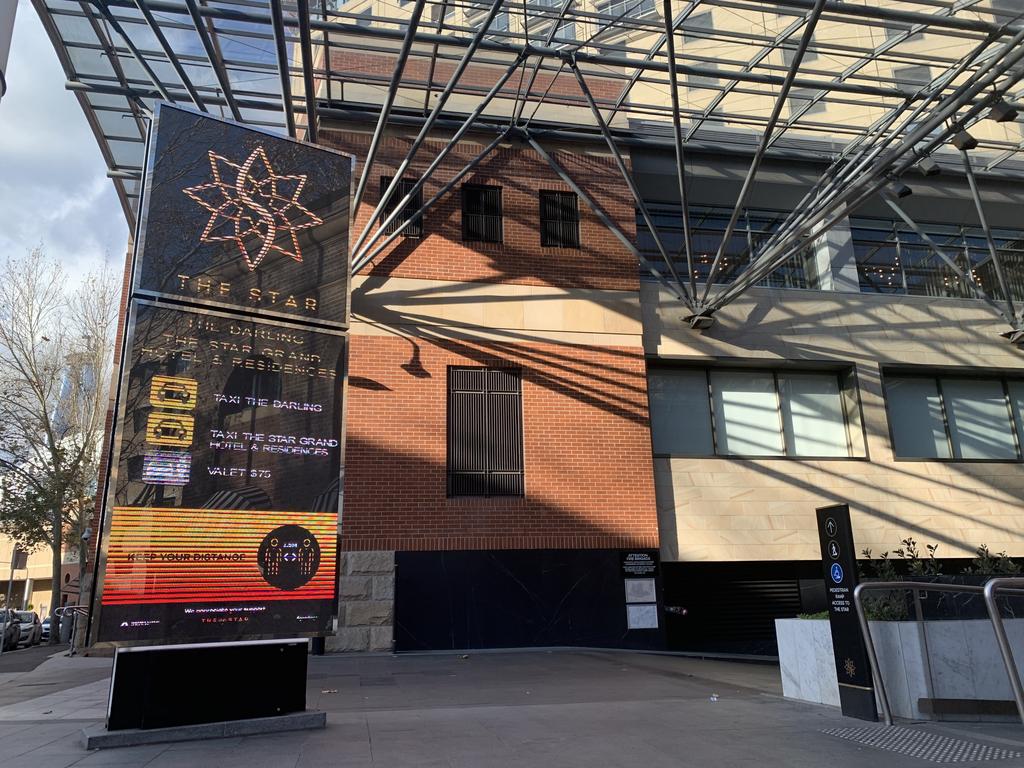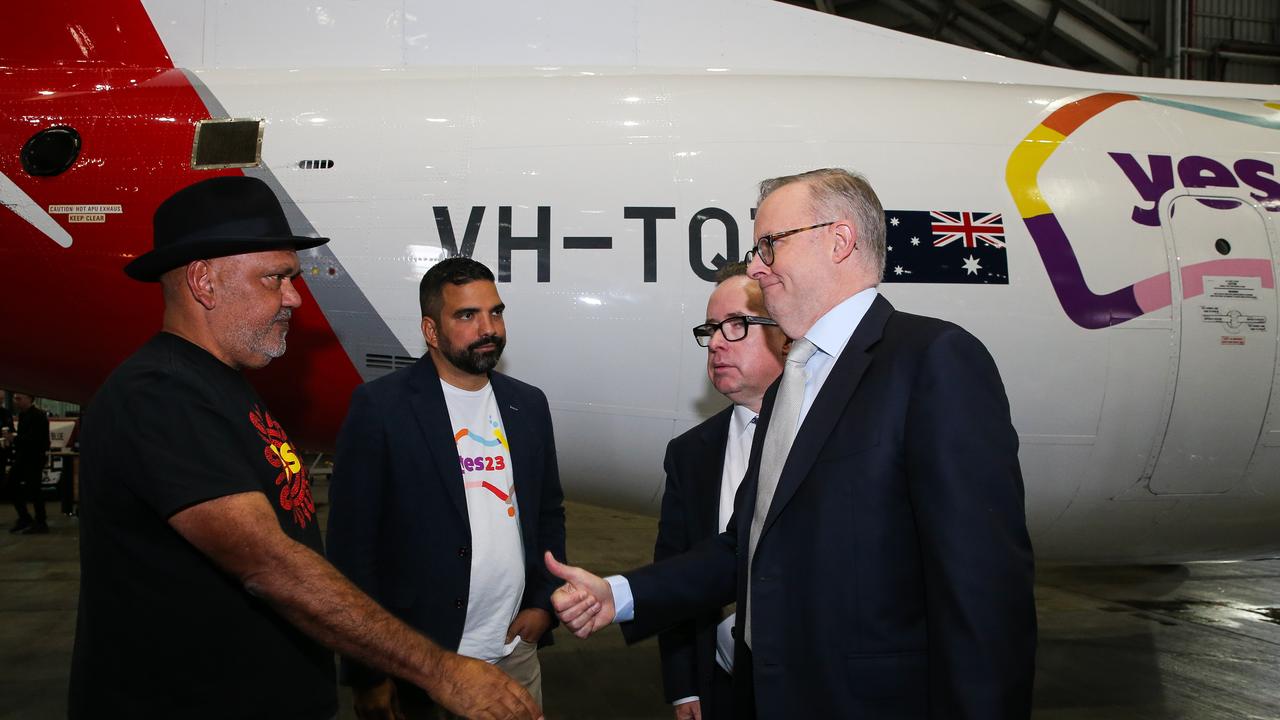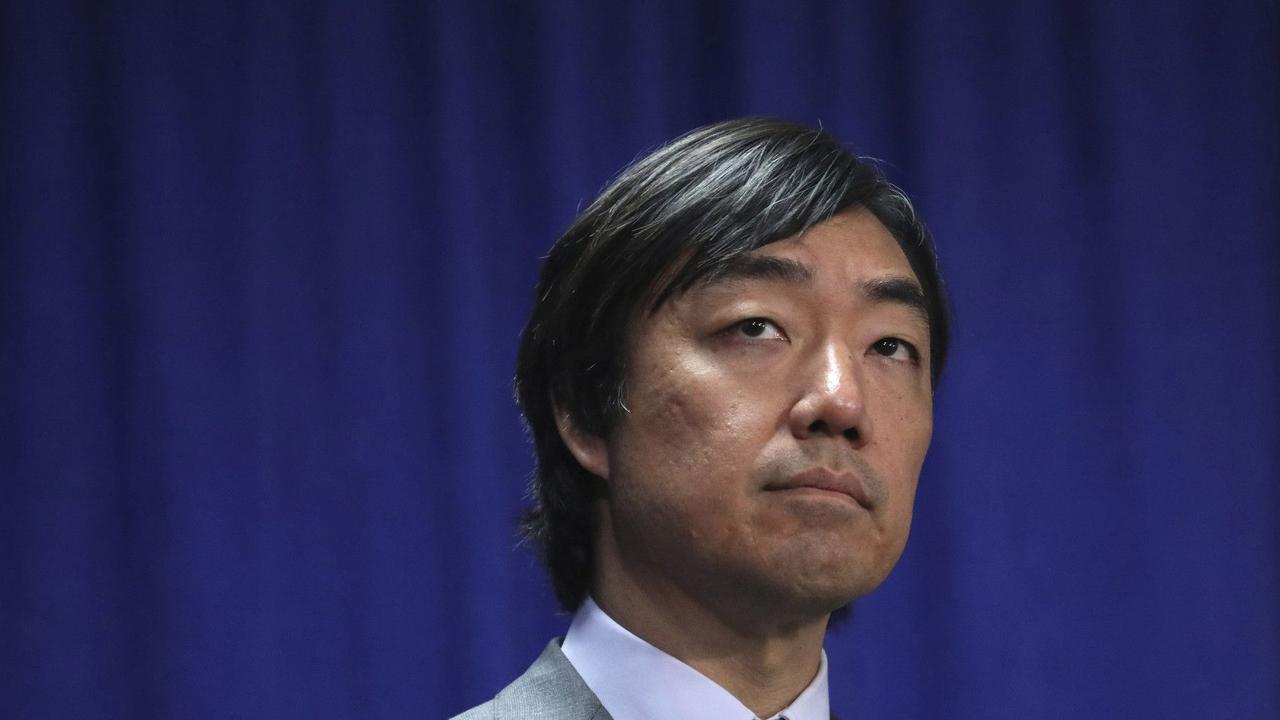Star Entertainment’s outgoing chairman John O’Neill sought to lobby govt to prevent public hearings
Faced with ‘stress and great pressure’, outgoing chair John O’Neill sought to lobby government to prevent public hearings in a royal-commission style inquiry.

Star Entertainment’s executive chairman John O’Neill sought to prevent public hearings in a royal commission-style inquiry into the troubled company’s suitability to hold a NSW casino licence.
In an email to fellow director Richard Sheppard – who told the inquiry that he will stay at the company until its annual meeting in October – Mr O’Neill said there was a “power of overt and covert work” to ensure the review remained “in-camera”.
If successful, such a move would have prevented the public from hearing a raft of explosive revelations about casino operators business practices, including how it disguised almost $1bn worth of gambling transactions on Chinese debit cards as hotel charges, associated with patrons with known linked to criminal gangs and sent faked source of wealth letters to the Bank of China.
The review has also seen CCTV footage of bundles of cash being taken from backpacks and exchanged for gambling chips at an exclusive gaming salon used by a Chinese junket headed by Alvin Chau, who was arrested in Macau last year over allegedly running an illegal gambling syndicate and money laundering offences.
Since the inquiry began in March, most of Star’s executive leadership – including chief executive Matt Bekier, chief financial officer Harry Theodore, chief legal and risk officer Paula Martin and NSW chief casino officer Greg Hawkins – have resigned, with directors indicating they will also leave.
Mr O’Neill – who has had a distinguished career as a sports administrator, playing a key role in securing the 2032 Brisbane Olympics – announced his own resignation in an after market ASX announcement on Friday evening. He will leave Star next Tuesday after chairing the company for a decade and assuming executive duties in April, and has flagged further staff departures.
The revelations come after Mr O’Neill – as late as Star’s annual meeting in October – stressed that the company was different to its scandal-plagued rival, the James Packer-controlled Crown Resorts.
At the same time, however, he was seeking to keep hearings into Star’s own casino licence suitability review in-camera – shielding them from public view.
That month, Mr O’Neill also briefed a “select group of investors” that the company’s use of China Union Pay cards broke no laws after its share price came “under pressure”.
This was despite the board obtaining a report that stated it had breached CUP rules. Gambling is illegal in China and CUP cards cannot be used for that purpose.
Mr O’Neill also approved an ASX announcement last year stating allegations against the company were misleading despite being yet to confirm whether the claims were true or false, citing an “under pressure” share price.
At the same time, Mr Sheppard – a former Macquarie Bank chief executive – wrote in an email to Mr O’Neill that he was concerned hearings for the inquiry, headed by Adam Bell SC, into Star’s suitability to hold a casino licence would be made public.
Mr O’Neill replied: “There is a power of overt and covert work underway which I can assure you (there is) extreme urgency to achieve the number one objective and imperative … of ensuring the Bell review remains in camera”.
“From the time that ILGA announced the suitability review of Mr Bell, at the time it was announced that the hearings would be in-camera, which for all the business continuity decisions and distractions was preferable,” he told the inquiry on Tuesday. “And that had been the intention. At this particular time, we had a strong preference that the Bell review would remain in-camera.”
Mr O’Neill said the “covert work” included Star’s internal government relations staff “communicating with the appropriate minister … to ensure that we were attending to a full investigation of the allegations”. He said there was “nothing sinister” in his actions and “it was not a matter of trying to stop” public hearings.
”If you weren‘t trying to stop these public hearings, how should I read your words,” Mr Bell asked.
“This came like a bolt from the blue and we were aware that moving into public hearing mode created significant challenges and significant distractions for the business,” Mr O’Neill replied.
“I can assure you Mr Bell there was no bad intent.
“We had started, your review, with the intention of it being held as a business as usual review. It had taken a serious turn for the worse and in the heat of battle it was my concern and other that if we can continue to have the review in-camera, that would be a better outcome for the business.”
Mr Bell asked Mr O’Neill if he accepted that the review’s “public hearings have uncovered serious misconduct, which you and your board colleagues should have identified”. “Yes, Mr Bell. But we were unaware of many of them at the time,” Mr O’Neill said.
Counsel assisting the inquiry Naomi Sharp SC asked Mr O’Neill what his position was, given he had previously said he “welcomed” Star’s “issues ventilated in public”.
He said he changed his tack after speaking with NSW Independent Liquor & Gaming chairman Philip Crawford.
“Once I had the conversation with Mr Crawford … his explanation was clear and instructive and brought me to a proper understanding of the benefits of the public hearings.”
Star directors received a report into the use of China Union Pay cards late last year which said its bank NAB might have been misled over the fact the cards were used to fund gambling. But Mr O’Neill said he and other directors did not complete their own investigation to determine whether NAB had been misled – instead leaving it to Bell review. “The board didn’t form a view that the NAB knew (the CUP cards were being used to fund gambling). This review would be taking evidence and the evidence would determine what was truthful,” he said.
Star allowed the practice for seven years from 2013. Mr O’Neill told concerned investors last October that Star Entertainment broke no laws over its practice of allowing patrons to use China Union Pay debit cards to fund almost $1bn worth of gambling transactions.
Mr O’Neill could not recall which investors he spoke to last October, saying he needed to check his diary but he said his conversations with them were at a “high level”. “It’s most likely I spoke off the top of my head about the review … at a high level that said no law was broken”.
Mr Bell asked why Mr O’Neill briefed a “select group” of investors rather than all the company’s shareholders. Mr O’Neill said that he spoke to those who requested “urgent meetings” with him.
Ms Sharp asked O’Neill did he speak to certain investors to “prop up the share price”. She highlighted an email that Mr O’Neill sent to Star executives that included a news article about a “boost” in Star’s share price.
“At best I may have saying that (his meetings with investors) contributed to an improvement in the share price,” Mr O’Neill said, adding that he did not believe the information he shared with those investors was price sensitive.
He also revealed Star had a chance to withdraw from the Chinese high-roller market following the arrests of 19 Crown staff in mainland China in late 2016.
But the company stuck with the lucrative trade, picking up junkets from Crown, which Mr O’Neill said on reflection were of “poor quality”.
“The business case was put to us that the money that was being made was acceptable and could be even more acceptable,” he said.
“The questions I intend to pose on propositions … is it perfectly legal, second question is it proper and third question is it prudent and lastly whether it’s profitable.
“You don’t address the profitability issue first or last. It has to be perfectly legal, proper and prudent. I think that word prudence is something that we fell short on. We had a junket business but there is a lot of pain and suffering as a result of staying in it.”
One of these Chinese junkets SunCity – which had links to triad gangs, according to a Hong Kong Jockey Club report that Star executives received in 2019 – was given its own gaming room known as Salon 95 at Star’s Pyrmont casino.
Star shares fell to $3.05. They are down 19.5 per cent this year.







To join the conversation, please log in. Don't have an account? Register
Join the conversation, you are commenting as Logout